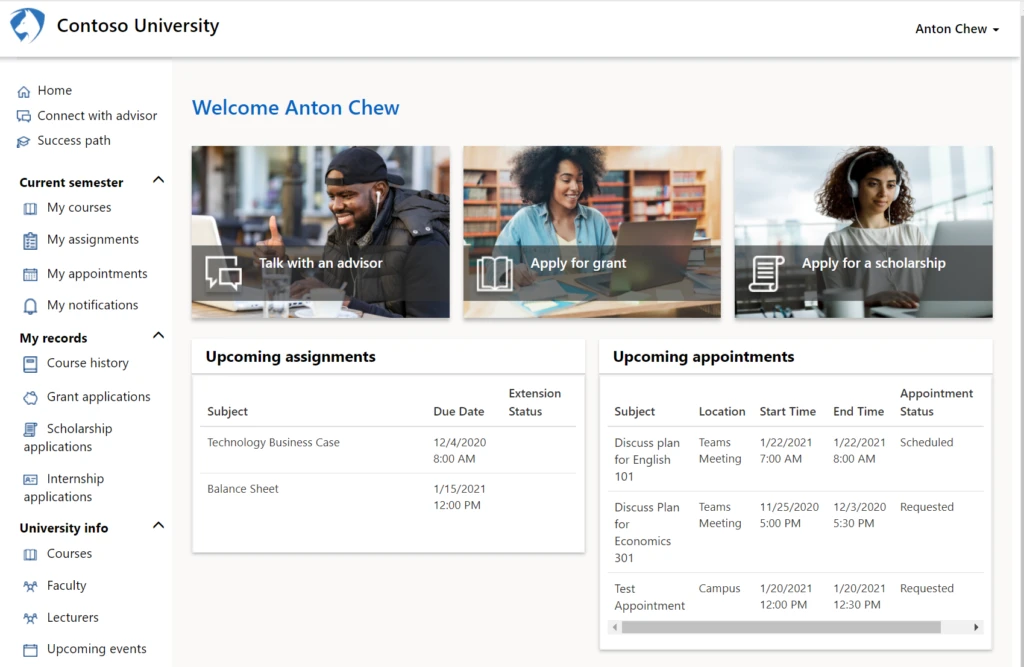Most of us know at least one college student who is attending some or all of their classes online to cope with current circumstances. With many schools operating primarily online or in a hybrid mode, millions of students are cut off from the traditional sources of support that colleges offer.
To help students navigate these challenges, we’re continuing to add new capabilities to the Dynamics 365 education accelerator, including a recent update that enables tele-advising to help students connect with their academic advisors online or in person, and an easy-to-read student success path that helps them monitor progress toward their academic goals.
The January 29, 2021 update includes:
- An updated student portal with an improved user interface and user experience.
- Advisor connection, allowing students to request in-person or online meetings with their advisor.
- Student success path to give students an at-a-glance view of their progress toward completion of program requirements.
- Personalized progress with details about their academics, such as current courses, assignments, appointments, and notifications.
- An advisor dashboard with a comprehensive view of top- and bottom-performing students, and upcoming appointments with students.
Student portal

Student success path

Delivering success through the partner ecosystem
Microsoft partners have already been helping higher education institutions make great use of these capabilities for their students.
The latest release of the accelerator focuses on ensuring that students continue to have access to advisors and key student success resources, even when they are not able to meet in person. Even when we all return to in person meetings, these tools will continue to ensure that advisors and students remain aligned and working to help each student achieve their goals.
—Dr. Jennifer Beyer, Vice President, Product Management, Anthology
With the January 2021 release, the Dynamics 365 education accelerator has truly transformed into a usable, functional and relevant extension of the Microsoft Dataverse for partners like the Frequency Foundry to continue to adopt into our ISV solutions.
With the introduction of features such as tele-advising, assisting students in understanding their graduation goals through the success path, and the updated student portal, the higher education accelerator provides a solid data architecture foundation for our CRM solution, greymatter.
With these great additions, we’ve been able to successfully extend our offering from our niche higher education marketplace to school districts with greymatter for K12. We’re stoked about the possibilities for us and for what it means for our higher education and K-12 customers.
—Shekar Kadaba, Chief Experience Officer | Chief Product Officer, Frequency Foundry
Ready to build your own education solution?
The education accelerator takes the unified data approach of Microsoft Power Platform a step further to help you build solutions for schools more quickly. To get started, download the education accelerator, which includes a higher education component and a K-12 component, from AppSource.
Read the documentation to learn more, or reach out to our team with your questions.
The post Support student success with the Dynamics 365 education accelerator appeared first on Microsoft Dynamics 365 Blog.
Brought to you by Dr. Ware, Microsoft Office 365 Silver Partner, Charleston SC.




Recent Comments